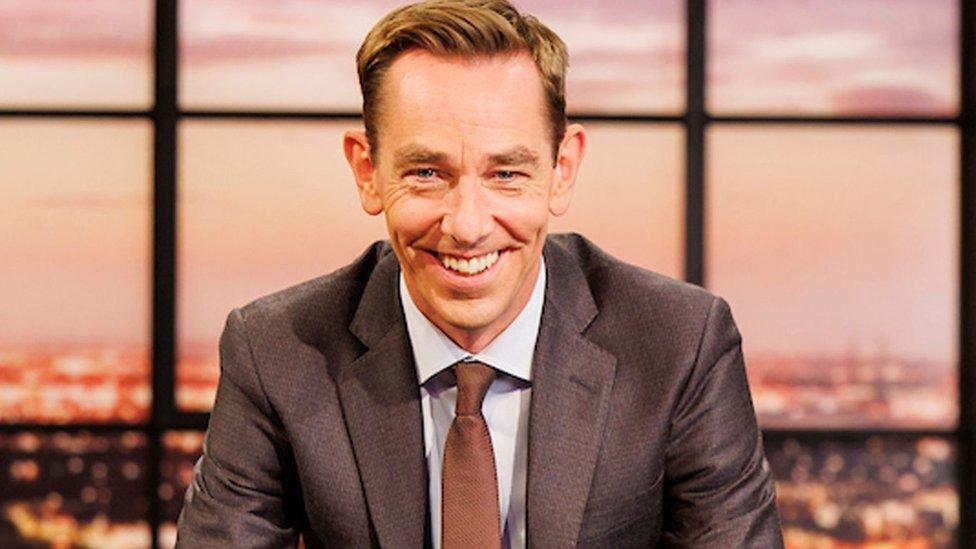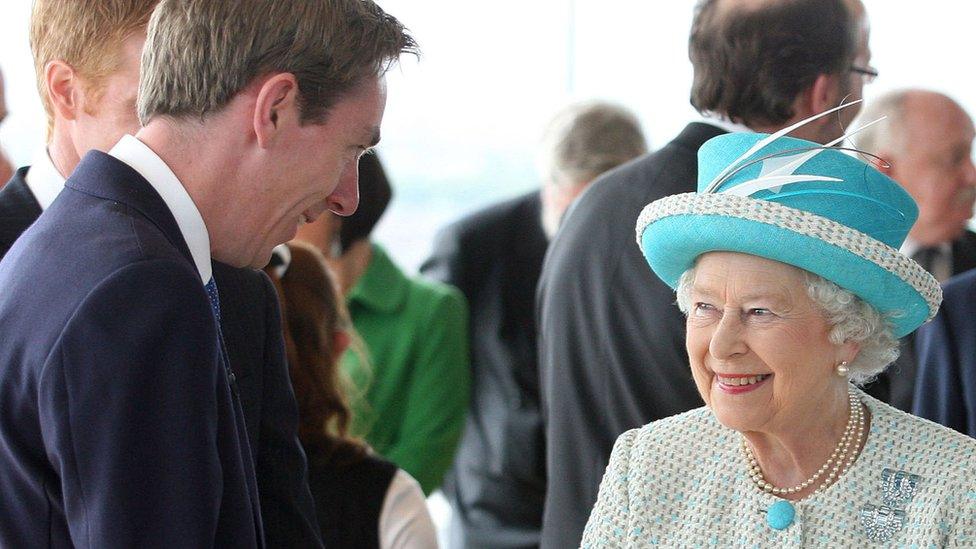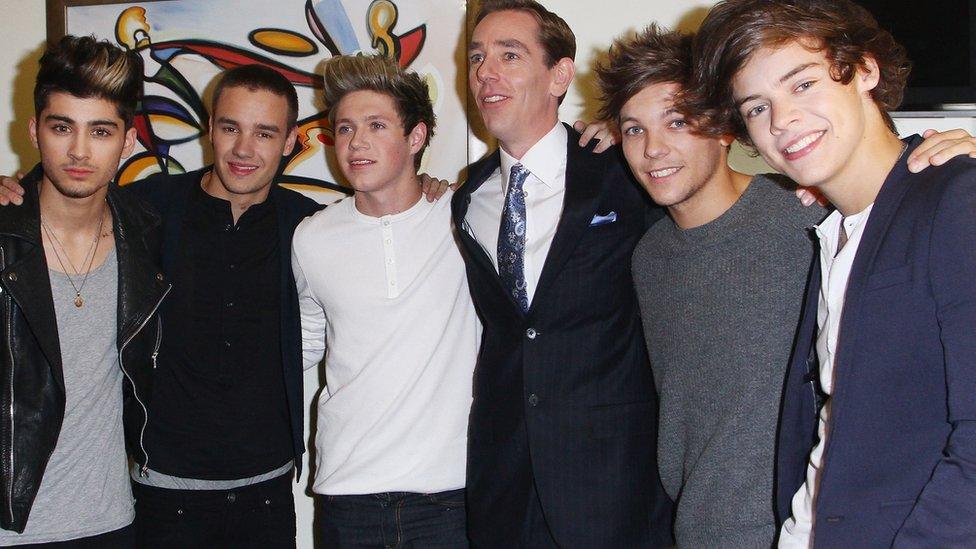Ryan Tubridy: Why Ireland is gripped by the RTÉ pay scandal
- Published

Chat show host Ryan Tubridy is expected to give evidence at the Irish parliament on Tuesday
While the British media has been dominated by allegations about a BBC presenter, across the Irish Sea, national broadcaster RTÉ has for weeks been dealing with its own, very different scandal.
It centres on undeclared payments made by the corporation to Ireland's highest-paid broadcaster, Ryan Tubridy.
The controversy has snowballed and is gripping the nation, to such an extent that parliamentary committee hearings are being screened in pubs.
On Tuesday, Tubridy is expected to appear at the Oireachtas (Irish Parliament) in front of two committees examining undisclosed payments of more than 345,000 euros (£296,800) over five years, on top of his declared annual salary of almost 500,000 euros (£428,000).
Pubs across the country are planning to show the televised meetings as the population hears directly from the chat show host for the first time.
Some clips from previous committee hearings have been viewed more than a million times on TikTok, with many other videos racking up hundreds of thousands of hits.
"There are very few shared moments in national culture now," says Brian Foley from the Vintners' Federation, a trade body representing thousands of pubs.
"This story has dominated the airwaves for the past three weeks like no other," he tells BBC News. "It has broken all the rules of a lifespan of a typical news story."
Mr Foley says customers have been "glued to the story", joking that the levels of interest in the country are similar to 1979, when the Pope visited.

More than half of Ireland's population turned out to welcome Pope John Paul II in 1979
For weeks, viewers have been hooked on the cross-examination of RTÉ executives by politicians.
Members of parliament took the organisation's chief financial officer - who couldn't confirm his own salary - to task for claiming not to know the "full extent" of Tubridy's pay arrangement, with one telling the executive he knew the star "wasn't being paid in jelly tots".
It is turning into one of the biggest crises for the broadcaster in its 97-year history.
Similar to the BBC, which will publish a list of its highest salaries on Tuesday, RTÉ also reports what it pays its top talent. An audit of the Irish organisation's finances found irregularities with what was in the public domain and what the accounts actually showed.
After further reading, the corporation has been accused of running "a slush fund" - spending thousands on flip-flops and gig tickets as well as millions on a failed musical, all "while crying poverty".
Taoiseach (prime minister) Leo Varadkar has said reform of how the institution is funded is well overdue.
The Irish broadcaster is funded using advertising revenue as well as a licence fee, external, and the scandal has dented the trust its audience has in it.

Ryan Tubridy is one of Ireland's best-known names in broadcasting
"RTÉ has such a big place in Irish society, so this scandal was always going to be big news," freelance entertainment reporter Emma Kelly tells BBC News.
"The Late Late Show in particular is such a cultural touchstone, so when people find out that RTÉ and Ryan Tubridy haven't been fully transparent, it's going to hurt."
The programme Tubridy presented until recently is not only an Irish institution - with a packed live audience for more than two hours each Friday night - but is the longest-running late-night talk show in Europe. The format smoothly flips between light entertainment interviews to serious society debate, with pop stars performing in the studio as well.
"The whole thing feel feels like a betrayal," Kelly explains. "The more ridiculous details that emerge or big names that get dragged in, the harder it is to look away."

International stars like One Direction have appeared on The Late Late Show
Tuesday will be the first time Tubridy has spoken publicly since the scandal was first reported. He'll appear with his agent Noel Kelly for hours of questioning.
Before the controversy was made public, the 50-year-old stood down as host of The Late Late Show after nearly 14 years, to be replaced by Patrick Kielty.
On Monday, former BBC News executive Kevin Bakhurst took over as director general and promptly stood down the entire executive board.
He wrote in an email to staff: "Change will be essential if we are to rebuild trust in public service broadcasting in Ireland and in RTÉ."
Related topics
- Published10 July 2023
- Published13 July 2023
- Published6 July 2023
- Published5 July 2023